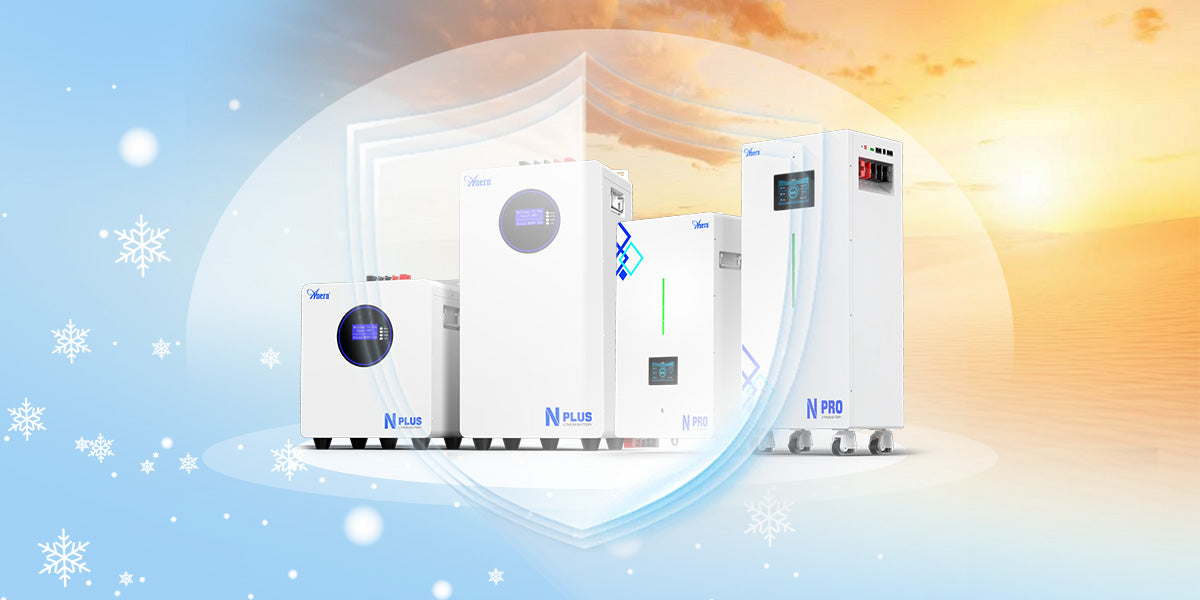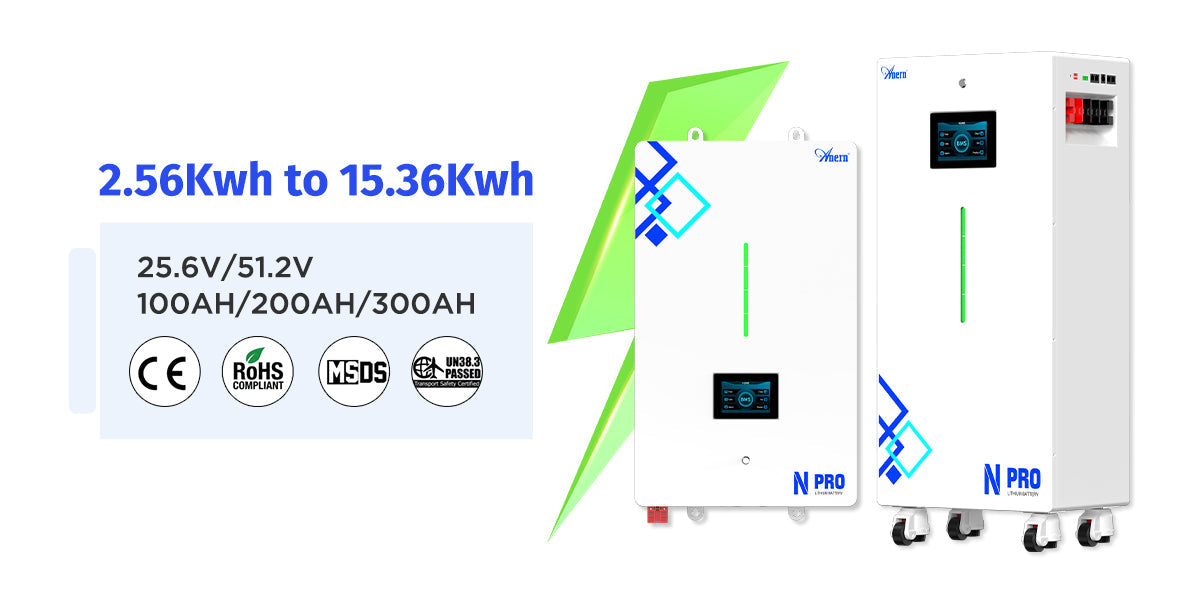Lithium-ion batteries are everywhere, from your phone to electric cars. But did you know extreme temperatures can damage them? In this article, we’ll explain the best temperature range for your battery, how it compares to other batteries, and how to protect it from heat and cold.
What Is the Good Temperature Range for Lithium-Ion Battery?
Take a quick look at the comfortable temperature range for Lithium-ion batteries:
- Lithium-ion batteries perform best within an ideal temperature range of 68°F to 77°F (20°C to 25°C).
- For storage, it’s recommended to keep the batteries in a temperature range from 32°F to 86°F (0°C to 30°C).
- When charging, the temperature should be between 32°F and 113°F (0°C to 45°C) to ensure optimal performance.
What Is the Extreme Temperature Range for Lithium-Ion Battery?
Lithium-ion batteries start to struggle with heat at around 40°C (104°F) and above, while cold temperatures below 0°C (32°F) can also cause issues. Not all batteries react the same, though. For example, the Anern 12V 50AH Deep Cycle LiFePO4 battery can handle a wider range, from -20°C to 60°C (-4°F to 140°F). Even so, it’s best to avoid exposing any battery to these extremes for too long.
How Lithium-Ion Battery Compares to Other Batteries In Temperature Tolerance
In the aspect of temperature tolerance, lithium-ion batteries outperform many other battery types:
-
Lithium-Ion Batteries:
- Ideal Operating Temperature Range: 68°F to 77°F (20°C to 25°C)
- Extreme Temperature Range: -4°F to 140°F (-20°C to 60°C)
- Advantages: Wider tolerance for both heat and cold, making them more adaptable to varying environments.
-
Nickel-Cadmium Batteries:
- Ideal Operating Temperature Range: 50°F to 86°F (10°C to 30°C)
- Extreme Temperature Range: -4°F to 140°F (-20°C to 60°C)
- Performance: Similar extreme range as lithium-ion but tends to degrade faster under temperature extremes.
-
Lead-Acid Batteries:
- Ideal Operating Temperature Range: 50°F to 77°F (10°C to 25°C)
- Extreme Temperature Range: 5°F to 122°F (-15°C to 50°C)
- Limitations: More restricted temperature tolerance, particularly at lower temperatures.
-
Nickel-Metal Hydride Batteries:
- Ideal Operating Temperature Range: 50°F to 86°F (10°C to 30°C)
- Extreme Temperature Range: -4°F to 140°F (-20°C to 60°C)
- Performance: Similar to nickel-cadmium, but with a tendency to degrade faster under extreme conditions.
Comparison Summary
| Battery Type | Ideal Operating Temperature Range | Extreme Temperature Range |
| Lithium-Ion | 20°C to 25°C (68°F to 77°F) | -20°C to 60°C (-4°F to 140°F) |
| Nickel-Cadmium | 10°C to 30°C (50°F to 86°F) | -20°C to 60°C (-4°F to 140°F) |
| Lead-Acid | 10°C to 25°C (50°F to 77°F) | -15°C to 50°C (5°F to 122°F) |
| Nickel-Metal Hydride | 10°C to 30°C (50°F to 86°F) | -20°C to 60°C (-4°F to 140°F) |
Lithium-ion batteries can handle a wider range of temperatures than older types like lead-acid and nickel-cadmium batteries. That said, they’re still not immune to the damaging effects of extreme heat or cold.

What Happens If Lithium-Ion Battery is Close to or Over Its Extreme Heat?
Extreme heat can quickly degrade a lithium-ion battery in the many ways:
- The heat accelerates the chemical reactions inside the battery, which can reduce the battery’s capacity over time.
- Prolonged exposure to high temperatures causes the internal structure of the battery to break down, leading to shorter battery life.
- If the temperature is too high, there’s a risk that the battery will overheat and catch fire or even explode due to internal pressure.
- Heat can make the battery discharge itself more quickly, meaning it will lose its charge even when not in use.
- Charging in high temperatures exacerbates the problems, as the battery can struggle to regulate its internal heat, further accelerating degradation.
What Happens If Lithium-Ion Battery is Close to or Over Its Extreme Cold?
Cold temperatures, while less dramatic, still adversely affect lithium-ion batteries:
- In cold conditions, the chemical reactions inside the battery slow down, which reduces the amount of charge the battery can hold.
- The battery takes longer to charge and may not perform well during use. It could struggle to provide enough power for demanding tasks.
- Extremely cold temperatures can cause the electrolyte inside the battery to freeze, leading to permanent damage and potential failure of the battery.
- In very cold temperatures, internal components may contract, which could lead to short circuits if the battery is not properly protected.
- If the temperature is too cold, the battery may stop working entirely until it warms up again.
How to Protect Lithium-Ion Battery from Extreme Temperature
You can adopt a few tips to protect your lithium-ion batteries:
- Always store devices with lithium-ion batteries in a cool, dry place with temperatures between 20°C to 25°C (68°F to 77°F).
- In extreme cold, use battery insulation or covers to keep the battery warm.
- Never charge a lithium-ion battery in high heat. If your device gets hot, unplug it and let it cool before continuing to charge.
- Avoid leaving devices in direct sunlight or hot environments, such as inside a car on a summer day.
- If you use a battery-powered vehicle or device for outdoor work, opt for charging stations designed to maintain a stable temperature while charging.
- Always monitor the battery for signs of overheating, like excessive warmth or swelling, and stop using the device if any signs are present.
Final Thoughts: Maximizing Your Battery's Lifespan
Extreme temperatures can quietly shorten the life of your lithium-ion battery. While these batteries are more resilient than older types, heat and cold still cause serious damage. From draining power faster to causing permanent harm, temperature extremes are a real threat. Luckily, with a few simple steps—like storing your device in a cool place or avoiding charging in the heat—you can protect your battery. A little care can go a long way in keeping your battery strong and lasting longer.





Leave a comment
All comments are moderated before being published.
This site is protected by hCaptcha and the hCaptcha Privacy Policy and Terms of Service apply.